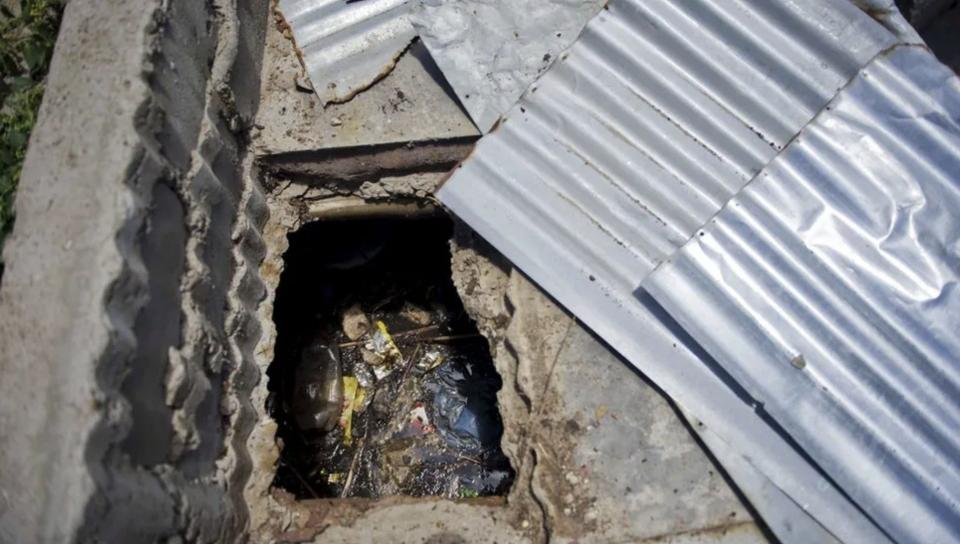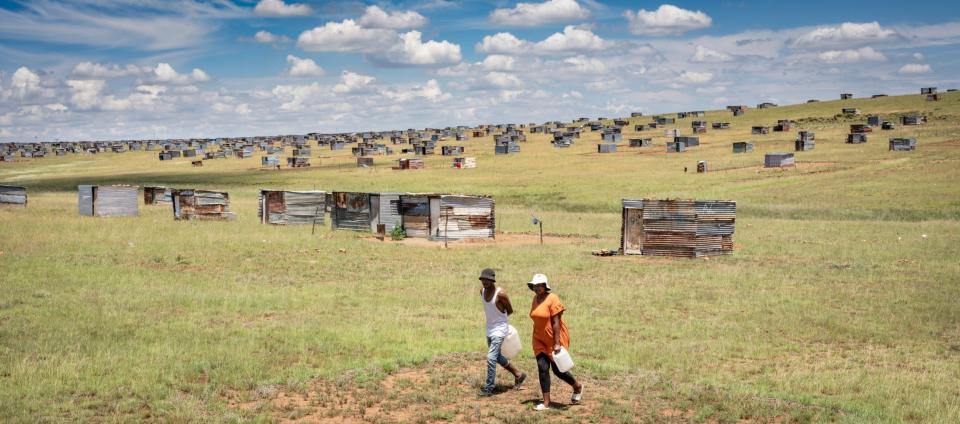Michael Komape’s mother took her other child on her back and ran to the primary school as soon as the officials called. Teachers said his son was missing.
The five-year-old was nowhere to be found until a young schoolmate made an unexpected revelation.
The little boy said Michael fell into the toilet. Searching for the spot the boy was pointing at, the teachers saw Michael’s dead hand appear in the pit of human waste beneath the dilapidated toilets.
“I later told him that my child died while asking for help,” Michael’s mother said in her lawsuit for damages three years later.
The death of Michael Komape in a school toilet near Polokwane in Limpopo province in 2014 shocked South Africa.


The fact that more than two decades after the end of apartheid, thousands of schools still have such dangerous toilets has become yet another symbol of inequality in a country full of inequalities.
Some pit toilets, which consist of a toilet seat perched over a hole in the ground, are well constructed and comply with the new standards, but many are not compliant and are dangerous and unsanitary.
South Africa’s ruling African National Congress (ANC) party has promised to replace the worst of them by 2016.
Instead, a decade after Michael’s death and well past the target date, more than 3,932 schools – or 17 per cent – still have unacceptable toilet facilities, according to human rights campaign groups tracking the issue.
Some of these schools have acceptable and unacceptable toilets, but 728 schools have nothing but toilets that should be banned and replaced.


Such toilets are often dilapidated efforts by the local community. They are dirty and unsafe, and even the smallest children are in danger of falling here. They can be so bad that children leave school and prefer to go to the toilet outside in the woods or bushes.
“It’s life-threatening, but these toilets are also in a disgusting state most of the time,” said Motheo Brodie, a candidate lawyer from the Section 27 campaign group.
“These are completely unhygienic and pose a threat to the health of students. “In some cases, these toilets are so dilapidated that they do not have doors.”
The existence of such toilets in schools in poor counties and rural areas is a strong example of not only inequality but also the government’s inability to deal with this problem.
South Africa is the most unequal country in the world, according to the ranking of a statistical measure called the gini coefficient, which assesses how income is spread across the population.


The wealthy have a lot, the middle class is relatively small, and the poor have very little. Approximately 18 million people in South Africa live on less than £1.50 a day. Unemployment is approaching 30 percent.
Campaigners say the problem is shaped by the country’s history but the current government is not helping.
In 2024 the most deprived areas were also deprived under apartheid.
But the ANC is also to blame. The party has been accused of failing to make changes during its 30 years in power; is being held back by its lack of will, mismanagement and corruption.
As voters head to the polls to elect a government in May, the ANC’s failure to alleviate such inequality and deliver even basic services will be on the minds of many poor voters.


“The fact that South Africa still has pit latrines is a huge indicator of inequality,” says Cassandra Dorasamy of Amnesty International.
“It is difficult not to say that this is due to the government’s lack of political will and at the same time recognize that these problems are deeply rooted in the inherited system of apartheid.
“But if you look at how budgets were cut or underspent, there were delays in delivery post-apartheid.”
Mr Brodie said central government had allocated money to replace dangerous toilets, but local government dysfunction meant this money was not spent.
He said: “They had 30 years and there was definitely more that could be done.
“Education is one of the most funded sectors in the country. Money has been allocated to eliminate pit latrines, but we see ministries of education underspending. We can’t even blame lack of resources for further progress.
“Given that this has been an issue that has been hot for so long, it really is a lack of political will.”


The lawsuit, brought by Section 27, a public interest legal center based in Johannesburg, has forced the Limpopo province, where Michael Komape died, to set targets for removing pit latrines. The state has reduced the number of schools using unacceptable toilets, but last year missed another deadline to remove those toilets entirely.
Other provinces are moving more slowly to remove them.
President Cyril Ramaphosa was last month praising the ANC’s achievements over the past 30 years, ahead of the May 29 election.
Political commentators predict he has an uphill battle ahead of him as the country faces its most important elections in three decades.
Frustration with the ANC over ongoing power cuts, crumbling infrastructure, an anemic economy, lack of services and ongoing corruption is expected to cause the party to lose its absolute majority for the first time since the vote was cast.
If the party does not get 50 percent of the votes, its thirty-year period of absolute dominance will end and a new and uncertain era in coalition politics will begin.
Convincing poor voters that the ANC has worked in their interests and delivered improvements over the past 30 years will be key to the party’s electoral strategy.
However, the image of school pit toilets in the country is just one example of their inadequacy.
Protect yourself and your family by learning more about Global Health Security